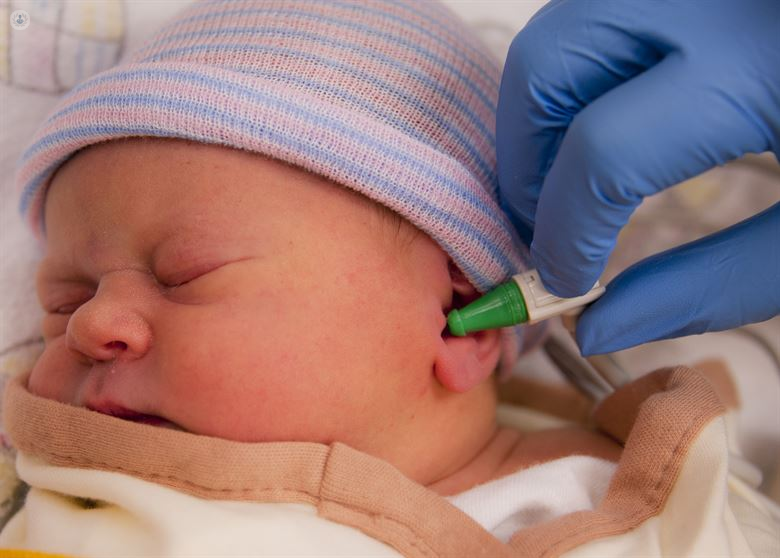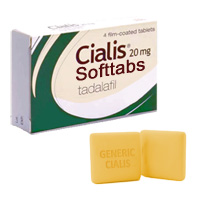ENT Pediatric Specialist: Comprehensive Care for Children’s Ear, Nose, and Throat Health

As a parent, your child’s health and well-being are always top priorities. When it comes to conditions affecting the ear, nose, and throat (ENT), children can be particularly vulnerable due to their developing immune systems, anatomical features, and behaviors. Whether it’s chronic ear infections, nasal congestion, or speech and swallowing difficulties, children may face ENT-related issues that require specialized care. This is where an ENT pediatric specialist comes in.
In this article, we’ll explore the role of an ent pediatric specialist, common conditions they treat, why it’s important to consult one, and what treatments and procedures are available to ensure your child’s ENT health is in optimal condition.
What is an ENT Pediatric Specialist?
An ENT pediatric specialist, also known as a pediatric otolaryngologist, is a medical doctor trained to diagnose, treat, and manage ear, nose, and throat disorders in children. They specialize in conditions unique to young patients, as children’s ENT health can differ significantly from that of adults. A pediatric ENT specialist has the expertise to address conditions related to the ear, nose, throat, sinuses, and related structures in children from infancy to adolescence.
Pediatric ENT specialists often work in conjunction with other medical professionals, such as pediatricians, allergists, speech therapists, and audiologists, to provide holistic care for children with ENT issues. They are trained not only to perform medical interventions but also to understand the specific concerns that arise when treating children, ensuring that care is tailored to the child’s age, needs, and comfort.
Common Conditions Treated by Pediatric ENT Specialists
Children are more prone to certain ENT conditions due to their rapidly growing bodies, frequent exposure to viruses, and developing immune systems. Here are some of the most common conditions treated by pediatric ENT specialists:
Ear Infections (Otitis Media)
Ear infections, particularly otitis media, are one of the most common reasons for a visit to the pediatric ENT specialist. These infections occur when bacteria or viruses cause inflammation in the middle ear, leading to pain, fever, and potential hearing loss. Young children, especially those under the age of three, are more likely to develop ear infections because their Eustachian tubes (which connect the middle ear to the throat) are shorter and more horizontal, making it easier for fluid to build up.
- Symptoms: Pain, fever, difficulty hearing, irritability, and fluid drainage from the ear.
- Treatment: Pediatric ENT specialists may recommend antibiotics if the infection is bacterial, but many cases resolve on their own. For recurrent or chronic ear infections, procedures such as ear tube insertion may be performed to drain fluid and prevent future infections.
Chronic Nasal Congestion and Sinusitis
Chronic nasal congestion and sinus infections (sinusitis) are common in children, especially during cold and allergy season. Sinusitis occurs when the sinuses become inflamed due to a bacterial or viral infection, often as a complication of a cold or flu. Chronic sinusitis can interfere with your child’s breathing, sleep, and overall quality of life.
- Symptoms: Persistent nasal congestion, facial pain or pressure, nasal discharge, cough, and trouble breathing through the nose.
- Treatment: Pediatric ENT specialists may recommend decongestants, nasal sprays, or saline irrigation to clear the sinuses. In severe cases, surgical intervention such as functional endoscopic sinus surgery (FESS) may be necessary.
Tonsillitis and Adenoiditis
Tonsillitis and adenoiditis are infections of the tonsils and adenoids (tissues in the back of the throat and nasal passages). These conditions are common in children and are often caused by viral or bacterial infections. Tonsillitis can cause a sore throat, difficulty swallowing, fever, and swollen lymph nodes, while adenoiditis may cause breathing difficulties, snoring, or sleep apnea.
- Symptoms: Sore throat, fever, difficulty swallowing, bad breath, and mouth breathing.
- Treatment: If the infection is recurrent or causes significant issues, an ENT pediatric specialist may recommend a tonsillectomy (removal of the tonsils) or adenoidectomy (removal of the adenoids).
Speech and Language Disorders
Children may also experience speech and language delays or disorders, which can be linked to problems in the ear, nose, or throat. Conditions such as cleft lip and palate, velopharyngeal insufficiency (a condition where the soft palate does not close properly), or recurrent ear infections that affect hearing can impact speech development. ENT specialists work closely with speech therapists to provide a comprehensive approach to treatment.
- Symptoms: Difficulty pronouncing words, unclear speech, delayed language skills, or hearing difficulties.
- Treatment: A pediatric ENT specialist may perform a thorough examination and recommend speech therapy, surgical interventions, or hearing aids to address the underlying issue.
Snoring and Sleep Apnea
Snoring and sleep apnea are not just problems for adults—they can also affect children. Sleep apnea occurs when the airway becomes partially or completely blocked during sleep, leading to breathing difficulties, pauses in breathing, and poor-quality sleep. Obstructive sleep apnea in children is often caused by enlarged tonsils or adenoids.
- Symptoms: Snoring, restless sleep, frequent night wakings, difficulty breathing during sleep, excessive daytime sleepiness, and irritability.
- Treatment: Pediatric ENT specialists may recommend adenotonsillectomy to remove enlarged tonsils and adenoids or suggest the use of CPAP machines for more severe cases of sleep apnea.
Allergies
Many children suffer from allergic rhinitis, which is triggered by allergens such as pollen, dust mites, pet dander, and mold. Symptoms can include sneezing, itchy eyes, nasal congestion, and a runny nose. If allergies are left untreated, they can lead to sinusitis, ear infections, and other ENT-related problems.
- Symptoms: Sneezing, itchy eyes, nasal congestion, runny nose, and coughing.
- Treatment: Pediatric ENT specialists may recommend antihistamines, nasal corticosteroids, or allergen immunotherapy (allergy shots) to help control symptoms and prevent complications.
Foreign Object Removal
Young children often put objects in their ears, nose, or throat out of curiosity. This can lead to discomfort, infections, and potential injury. Common objects include beads, small toys, food, and cotton buds.
- Symptoms: Pain, discomfort, or visible foreign objects.
- Treatment: A pediatric ENT specialist can safely remove the foreign object using specialized tools and techniques, preventing further injury or complications.
Why Consult an ENT Pediatric Specialist?
Parents should consider consulting an ENT pediatric specialist if their child experiences persistent or recurrent issues related to the ear, nose, or throat. Early intervention is key to preventing long-term health problems and promoting a child’s well-being. Here are some reasons to seek the help of an ENT pediatric specialist:
- Persistent Symptoms: If your child experiences frequent ear infections, chronic nasal congestion, or recurring sore throats, a pediatric ENT specialist can provide a comprehensive diagnosis and treatment plan.
- Speech or Hearing Problems: Delays in speech or issues with hearing can affect a child’s development. A pediatric ENT specialist can evaluate hearing and speech function and recommend appropriate interventions.
- Breathing or Sleep Issues: Snoring, sleep apnea, or difficulty breathing may indicate underlying ENT conditions. A pediatric ENT specialist can help identify the cause and offer treatment options to improve your child’s sleep and overall health.
- Surgical Needs: In cases where medical management alone is insufficient, a pediatric ENT specialist can recommend and perform necessary surgical procedures such as tonsillectomy, adenoidectomy, or ear tube insertion.
How to Choose the Right ENT Pediatric Specialist
When looking for an ent pediatric specialist, it’s important to consider the following factors:
- Credentials and Qualifications: Ensure that the specialist is board-certified in pediatric otolaryngology and has extensive experience in treating children’s ENT conditions.
- Reputation and Referrals: Ask for referrals from your pediatrician or other parents who have had similar experiences. Online reviews and patient testimonials can also provide insights into the specialist’s reputation.
- Child-Friendly Environment: Look for a clinic that is child-friendly and designed to make young patients feel comfortable and at ease. Pediatric ENT specialists should be patient, compassionate, and able to communicate effectively with both children and parents.
- Communication and Approach: A good pediatric ENT specialist should be approachable, able to explain your child’s condition clearly, and provide treatment options in a way that you can understand.
Conclusion
An ENT pediatric specialist plays a crucial role in managing and treating a wide range of ear, nose, and throat conditions in children. From common issues like ear infections and sinusitis to more complex conditions such as sleep apnea and speech disorders, pediatric ENT specialists are equipped with the expertise and tools necessary to address your child’s health needs. If your child experiences persistent ENT symptoms or has difficulties with hearing, breathing, or speech, consulting an ENT pediatric specialist in Singapore can provide the necessary care to ensure your child’s well-being and optimal development.
With early diagnosis, personalized care, and timely intervention, an ENT pediatric specialist can make a significant difference in your child’s health journey.



